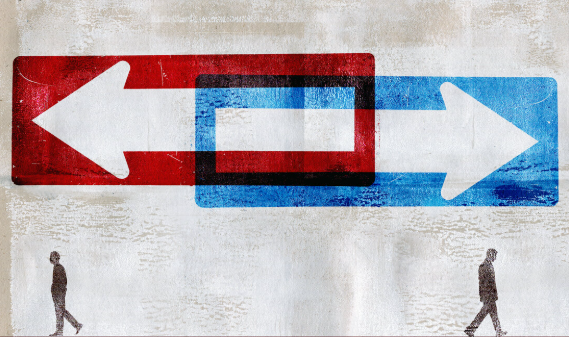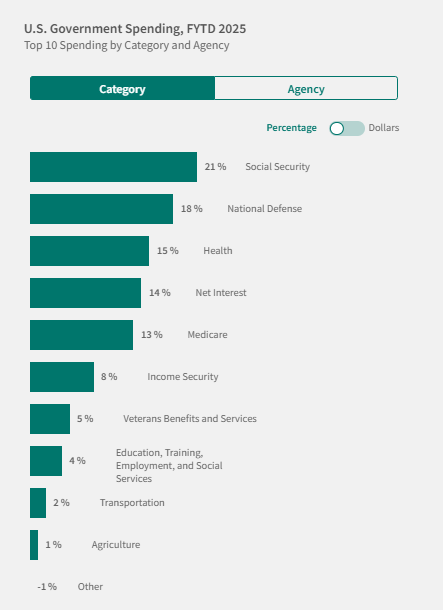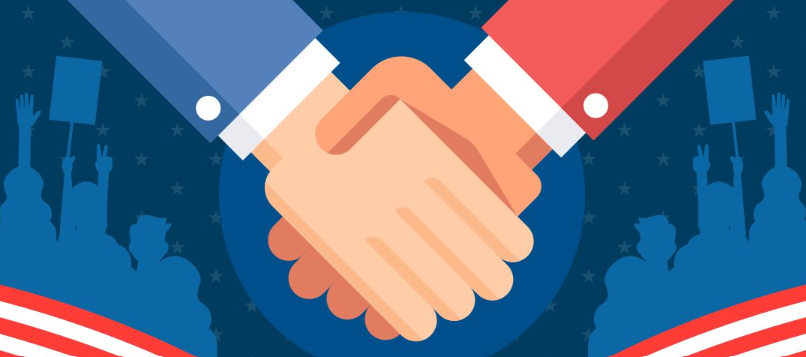This will be a difficult essay for me to write, though it may help provide some closure to this past voting season. Or perhaps not.
I have always been a student of politics. This interest was nurtured through high school government and history classes. My non-fiction reading has included biographies of early presidential leaders. I have visited the John F. Kennedy library in Boston Massachusetts and that experience further informed my admiration for leadership and statesmanship. I have followed and voted in so many elections over the years. Raised as a Democrat in Pennsylvania, I have retained support for social change and educational issues, while questioning defense spending levels and tax initiatives. I maintain a certain amount of caution against government (over)spending, regulation, and social dictates – which arise from both sides of the political aisles.
Election cycles are always a time for tracking trends in our domestic policies, cultural changes, and internal reactions to foreign policy initiatives. They bring stress and anxiety every two years, heightened further with each four-year cycle of presidential elections. I have lived through the Nixon and Reagan years, Bush, Clinton, Bush again (with hanging chads), the uniting promise the Obama brought along. For years the saying was “it’s the economy stupid,” accompanied by the ever-evolving culture wars related to drugs, crime, and punishment. In more recent year’s gay marriage, abortion rights, transgender issues and of course immigration have emerged front and center.

In the past two weeks I have read a dozen or more columns or editorials that purport to explain the Democratic party losses in this election cycle. They all contain a kernel (or two) of truth, but do not fully explain the results. From my experience in operational and safety related fields, I learned early on the “everything counts, though some things count more than others.” I try not to judge the opinions and actions of voters that support conservative policies. It is important to listen and understand their motivations and opinions. Sometimes I struggle to understand.
Looking back through past election cycles, American are perpetually unhappy with the incumbent administrations. Unhappiness in voter’s lives is directed outward to the government, especially as related to income / spending, personal financial security, regulation, and control. Though in fact government control is expressed through the actions of both major parties.
In my view the recent election results were driven by the following three drivers, and not necessarily in this order:
- Inflation – as an aspect of the general economy and upward mobility.
- Immigration – in the sense of a threat to my vote, or a perceived threat to my livelihood.
- The Cult of Personality – as it applies to presidential candidates.
I will not try to convince anyone with data, though I can provide a few reference links. It is perception that counts during election cycles, and perceptions are hard to debate or change. News media highlight the negative impacts of the economy, foreign policy, personal failings of elected officials, their associates and family members. What is the impact of the 24-hour cable and print outlets that tend to focus on these messages, and election ad money that brings it front and center?
Inflation: Suffice to say that this has been an issue front and center for the past four years. There are several reasons for the COVID driven inflation increases. The federal stimulus packages threw excessive money into the economy. What would have happened to the economy without these stimulus packages? No one is sure if it would be better or worse. In one sense it does not matter, the federal government would take the blame in any case. Worldwide supply chain issues exacerbated shortages of key supplies / materials and drove up prices. It did not keep most families from spending, they did not hold back and thus also reinforced the supply side shortages. Wages continued to increase (contributing to part of the inflation increase), Social Security benefits increased as well. Unpacking the Causes of Pandemic-Era Inflation in the US | NBER
For some of us this was an annoyance, but it did not materially disrupt our daily lives. Though everyone saw the visible impacts of these increases, and those on fixed incomes or working in low wage jobs were especially pinched. I get it. Still, we live in the strongest economy in the world, and the standard of living increases year on year, decade on decade. US Standard of Living Statistics and Data Trends: household income, poverty rate, and more | USAFacts Now, even as the inflation rate eased, the issue remained front and center for many voters.
Immigration: I am conflicted about immigration issues. That so many thousands of poor citizens from Central America, Venezuela, Haiti, West Africa and even China keep throwing themselves at our doorsteps looking for asylum is disturbing to me. Most have arrived for economic reasons. Releasing an asylum seeker into the general population for years on end waiting for a court review date makes no sense. We cannot help them all and controls need to be strengthened to manage the influx for the long term. On the other hand, our economy is supported by the thousands / millions of relatively low wage jobs that immigrants (legal and otherwise) take across the U.S. It is much easier to campaign on this issue than to agree to fix it.
It is less the threat of losing low paying jobs (to immigrants) that few people who are born here want in any case. In my view the greater fear is of an influx of voters who would tend to support more progressive policies – though in fact very few are eligible to vote. Isabel Wilkinson wrote a book about the impact of caste systems in American society. Caste: The Origins of Our Discontents: Wilkerson, Isabel: 9780593230275: Amazon.com: Books
Her recent comments: … “Caste is an x-ray of our country. It shines a light on how we arrived at this era of rupture and reveals the origins of our collective discontents. It answers the otherwise incomprehensible question asked time and again in recent years: “Why do some people ‘vote against their own interests?’” The answer, through the lens of Caste, is they don’t. They are voting for the interests that matter most to them. When you look at this as only an election, then it doesn’t make sense. But when you look at this as an existential crisis over what our country will be, then it starts to make sense. For many people, as we saw on Jan 6, that means maintaining their position at the top of the American caste system, with all the rights and entitlements that come along with it.
…Tensions are on the rise as our country faces an existential crisis unlike any we have seen before, due to the projections that, by 2042, the historic white majority would no longer be in the majority. As it is, in 2020, the census found that, for the first time in American history, the white population was the only group whose numbers fell while others remained steady or grew. This is an existential crisis for everyone because we have never experienced this configuration as a nation. That is why we are seeing a fixation on immigration in this country – as to which kind of immigrants are welcomed versus which would be deported, and a fixation on curtailing abortion and ensuring more births. The task before us is to imagine what kind of nation we want to be and what we are willing to do to achieve it.” I may sadly agree.
The culture of personality: I think that above all, the presidency is a popularity contest of sorts. To simplify the equation, assume Republican supporter falls into two camps. Those who may not like the candidate but support the policies brought forward, especially on social issues, immigration, and reduction of government oversight. It is easy “to not care” about issues of character or truthfulness or honor. Perhaps easier than in years (generations?) past. I do not pretend to understand the logic of this. I want to attribute it to changes in cultural and societal norms, but I am not sure. In my view the words and actions of a presidential candidate are more than enough to disqualify one from the opportunity to lead our nation. Others obviously do not agree. I do not get it. The related elephant in the room is the gender gap among voters. This election has convinced me (for a 2nd time) that most of the country (both sexes) are not ready to support a woman in what is perceived to be the most powerful position in the U.S. and across the world.
One other point. Finally, the election was lost because of a failure to hold or increase election turnout, particularly among younger voters. Again, as a child of the 1960’s protest movements for racial and gender equality, and environmental protections, I do not fully understand this. My age is showing when I say that the minutia of popular social media takes all the air out of the room, leaving no time for a generation of voters to seriously consider and inspect the trajectory of our institutions, and to honestly challenge the direction we are heading. There, I said it.
All other issues: These mattered to a (much) lesser degree: climate change, regulation, deficit spending, abortion rights, international issues. Here, are the hard truths; nobody cares so much about these issues amid a national election. Few care about the changes necessary to dive changes in the trajectory of climate change. Market forces and emerging technologies will eventually drive emission reductions, though likely at a slower pace than is necessary to reverse current and future environmental impacts. “The tragedy of the commons” as related to climate change: When individuals act in their own self-interest by emitting greenhouse gases into the atmosphere (a shared resource), it leads to collective harm through global warming, as no one person owns the atmosphere and therefore there is no individual incentive to limit their emissions, resulting in overexploitation of this shared resource. For many voters I “care” about the environment but I feel helpless to improve it, the effects are long term, short-term costs do not help me to live my best life.
Very few domestic voters care about foreign conflicts. No one cares much about federal funding levels or budget deficits, except as seen as a proxy for the size and scope of government. Social Security and defense outlays consume 40 percent of the federal budget. Medicare, Medicaid, veterans’ benefits, and associated health spending another 33 percent. Interest on the debt, 14%. All adding up to approximately 83 percent of the year-on-year budget. Government Spending Explorer | USAspending Federal Spending | U.S. Treasury Fiscal Data

Efforts to address spending reductions are doomed to nibble around the edges, if the big-ticket items remain off the table. Abortion rights have become a de-facto state issue; it may drive state level elections but will remain a lessor issue at the Federal level. Well intentioned proposals to address these issues are not winning election strategies.
What next? I may be opposed to many Republican policy initiatives on personal or ethical grounds. Truth be told, the policies enacted through a Republican congress and presidency will not materially affect my life. The economy is a huge machine, and it is hard to steer it, or wreck it, by working around the edges. Perhaps the promise of AI will drive economic growth to new levels. Or, other yet unrecognized drivers of employment and spending may create a recession. The electorate will likely swing back toward more center or left of center policies, or we may be seeing a systemic move to the right. I do not know. We will see in two years. Let the Republicans have the car keys for a while and see what they might break and go forward from there.
What I do know is that I must live my life less connected to the drama of politics. I have been trending that way for a few years, and I need to continue that course, for my own peace of mind. This does not mean that I will not care about issues that affect the people of this country. But I cannot fix everything, and certainly not this. I will remain optimistic that our lives will continue more forward toward a more perfect union. What Americans Can Do to Bridge the Political Divide | TIME

Our fathers brought forth on this continent, a new nation, conceived in Liberty, and dedicated to the proposition that all men are created equal. …this nation, under God, shall have a new birth of freedom -and that government of the people, by the people, for the people, shall not perish from the earth. – Abraham Lincoln
“Let us not despair but act. Let us not seek the Republican answer or the Democratic answer but the right answer. Let us not seek to fix the blame for the past – let us accept our own responsibility for the future.” –Speech at Loyola College Alumni Banquet, Baltimore, Maryland, 18 February 1958. Papers of John F. Kennedy. Pre-Presidential Papers. Senate Files, Box 899, “Loyola College annual alumni banquet, Baltimore, Maryland, 18 February 1958.” JFK Library.